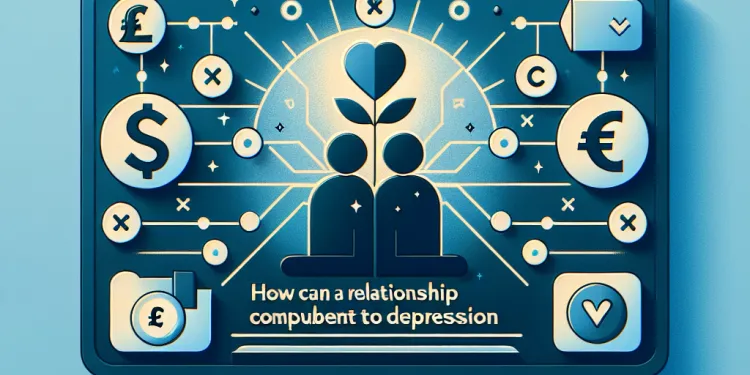
Find A Professional
More Items From Ergsy search
-

Can stress trigger psoriasis flare-ups?
Relevance: 100%
-

What role do lifestyle changes play in managing psoriasis?
Relevance: 57%
-

Can stress cause asthma symptoms?
Relevance: 51%
-

What causes psoriasis?
Relevance: 49%
-

What is psoriasis?
Relevance: 48%
-

Is there a cure for psoriasis?
Relevance: 43%
-

Can diet affect psoriasis?
Relevance: 41%
-

Psoriasis | NHS
Relevance: 38%
-

Are there home remedies for psoriasis?
Relevance: 37%
-

How is psoriasis diagnosed?
Relevance: 37%
-

Can stress make Crohn's disease worse?
Relevance: 37%
-

How to treat psoriasis
Relevance: 33%
-

When should I see a doctor for psoriasis?
Relevance: 33%
-

Coping with Stress and Anxiety
Relevance: 30%
-

What treatment options are available for psoriasis?
Relevance: 29%
-

What are systemic medications for psoriasis?
Relevance: 28%
-

Does stress contribute to nettle rash?
Relevance: 27%
-

What are topical treatments for psoriasis?
Relevance: 27%
-

Treating scalp psoriasis
Relevance: 24%
-

Mortgage Regulator removes the need for further affordability stress tests
Relevance: 22%
-

Patient Information Video - Leeds Stress Echocardiography Service
Relevance: 21%
-

Pelvic health: stress urinary incontinence
Relevance: 19%
-

Can stress related to caffeine consumption affect blood pressure?
Relevance: 18%
-

How important is it to keep the skin moisturised with psoriasis?
Relevance: 16%
-

Can physical symptoms be linked to relationship-induced depression?
Relevance: 16%
-

Can over-the-counter treatments help with psoriasis?
Relevance: 15%
-

What is eczema? General Information
Relevance: 15%
-

Can phototherapy help with psoriasis?
Relevance: 14%
-

Post-traumatic stress disorder (PTSD) - Introduction
Relevance: 14%
-

Factors that trigger eczema in your child
Relevance: 13%
-

IBS and your mind: Is there a connection?
Relevance: 12%
-

Post-traumatic stress disorder (PTSD) - Self-help guide
Relevance: 11%
-

How does walking to work impact mental health?
Relevance: 10%
-

Mental Health Impact of Cost of Living Crisis and Support Resources
Relevance: 10%
-

IBS and your mind: Is there a connection?
Relevance: 10%
-

How can a relationship contribute to depression?
Relevance: 9%
-

Are UK's Post-Pandemic Work Habits Harming Mental Wellbeing?
Relevance: 9%
-

Can relationship problems be resolved to improve mental health?
Relevance: 8%
-

Will the test affect my menstrual cycle?
Relevance: 8%
-

Raynaud's Disease
Relevance: 8%
Understanding Psoriasis
Psoriasis is a long-term autoimmune condition that affects the skin, causing red, itchy, and scaly patches. It is characterized by the rapid growth of skin cells that accumulate on the surface, forming scales and red patches that might be painful. Psoriasis is a common condition that can affect anyone, although factors like genetics, environmental influences, and the immune system play a significant role in its development.
Stress as a Trigger
Stress is widely recognized as a potential trigger for psoriasis flare-ups. Although the exact mechanisms are not fully understood, it is believed that stress can exacerbate the symptoms of psoriasis by inducing an inflammatory response. During periods of stress, the body releases chemicals such as cytokines, which can lead to inflammation and, consequently, trigger psoriasis symptoms.
How Stress Impacts Psoriasis
When an individual experiences stress, their body's natural response is to release stress hormones like cortisol and adrenaline. These hormones prepare the body to deal with the stressor but also influence immune system functionality. In people with psoriasis, an overactive immune response leads to the rapid multiplication of skin cells, causing the tell-tale patches of psoriasis. Therefore, stress-induced hormonal changes can act as a catalyst for flare-ups.
Managing Stress to Mitigate Flare-Ups
Managing stress can be crucial for individuals with psoriasis. Techniques that are useful in reducing stress include mindfulness, meditation, and exercise. These activities help in reducing overall stress levels and may, in turn, help decrease the frequency and severity of psoriasis flares. Engaging in regular physical activity and ensuring adequate sleep are also beneficial in managing stress.
Professional Support and Treatment
For those with psoriasis, seeking professional medical advice is important, particularly if they notice a link between stress and flare-ups. Healthcare providers can offer a range of treatments, including topical treatments, phototherapy, and systemic medications, to manage the symptoms of psoriasis. Psychological therapies, such as cognitive-behavioral therapy (CBT), may also be recommended to help cope with stress and its impact on psoriasis.
Conclusion
In conclusion, stress can be a significant trigger for psoriasis flare-ups. Understanding the relationship between stress and psoriasis is essential for effective management of the condition. Through medical interventions, stress-reduction techniques, and lifestyle changes, individuals with psoriasis can work towards minimizing the occurrence and impact of flare-ups. If you suspect stress is affecting your psoriasis, it is advisable to consult with healthcare professionals for personalized advice and treatment options.
Understanding Psoriasis
Psoriasis is a skin problem that lasts a long time. It makes your skin red, itchy, and has flaky patches. These patches happen because your skin cells grow too fast. Psoriasis can hurt. Anyone can get it, but things like your genes, where you live, and your body's defense system can make it happen.
Stress as a Trigger
Being stressed can make psoriasis worse. We don't know exactly how, but stress makes your body react. It releases things called cytokines that make your body inflamed. This can cause psoriasis to get worse.
How Stress Impacts Psoriasis
When you are stressed, your body makes special chemicals to help deal with it. These are called hormones, like cortisol and adrenaline. These hormones can change how your body defends itself and make psoriasis worse by making your skin cells grow too fast. This is why stress can make your psoriasis flare-up.
Managing Stress to Help Flare-Ups
Keeping stress down can be very helpful if you have psoriasis. Some good ways to do this are taking deep breaths, meditating, and exercising. These activities make you less stressed and might help your skin, too. Exercising and sleeping well also help reduce stress.
Professional Support and Treatment
If you have psoriasis, it’s important to talk to a doctor, especially if you think stress is making it worse. Doctors can give you different treatments, like creams, special light treatments, or medicine to help your skin. Talking to a therapist can also help you manage stress and your psoriasis.
Conclusion
Stress can make psoriasis worse. Knowing how stress affects your skin can help you manage it better. Doctors, stress-reduction activities, and changing some habits can help you deal with psoriasis. If you feel stress is making your skin worse, talk to a doctor to get advice and help.
Frequently Asked Questions
Can stress trigger psoriasis flare-ups?
Yes, stress is a well-known trigger for psoriasis flare-ups in many people.
Why does stress cause psoriasis flare-ups?
Stress can impact the immune system and trigger inflammation, which can exacerbate psoriasis symptoms.
Is stress the only trigger for psoriasis flare-ups?
No, there are various triggers for psoriasis flare-ups, including infections, skin injuries, certain medications, and weather changes.
How can I manage stress to help control my psoriasis?
Practices such as exercise, meditation, deep breathing exercises, and seeking support from friends, family, or professionals can help manage stress.
Can relaxation techniques help reduce psoriasis symptoms?
Yes, relaxation techniques can help reduce stress levels, potentially leading to fewer psoriasis flare-ups.
Are there specific stress levels that trigger psoriasis?
The stress level that can trigger a flare-up varies from person to person. It's important to identify personal stress thresholds and triggers.
Is there scientific evidence linking stress to psoriasis?
Scientific studies support the link between stress and psoriasis, showing that stress can aggravate the condition in those predisposed to it.
Can stress trigger psoriasis in someone who has never had it before?
While stress is more likely to exacerbate existing psoriasis, extreme stress could potentially contribute to the initial outbreak in predisposed individuals.
Do all psoriasis patients experience flare-ups due to stress?
Not all individuals with psoriasis experience stress-induced flare-ups, but it is a common trigger for many.
Can mental health treatment improve psoriasis symptoms?
Yes, addressing mental health through therapy or counseling can help manage stress, potentially reducing psoriasis symptoms.
What type of health professional should I see for stress-related psoriasis?
You may benefit from seeing a dermatologist for psoriasis management and a therapist or counselor for stress and mental health support.
Can lifestyle changes help manage stress-related psoriasis flare-ups?
Yes, lifestyle changes such as regular physical activity, balanced nutrition, and sufficient sleep can aid in managing stress and psoriasis.
How quickly can stress cause a psoriasis flare-up?
The timing can vary; some people may experience a flare-up almost immediately following stress, while for others it might take days or weeks.
Can reducing stress levels prevent future psoriasis flare-ups?
Reducing stress may lower the chances of flare-ups and improve overall symptom management, but it might not prevent all flare-ups.
What role does meditation play in managing psoriasis?
Meditation can reduce stress, potentially leading to fewer and less severe psoriasis flare-ups.
Are there any stress management programs specifically for psoriasis patients?
Some hospitals and clinics offer stress management programs or workshops tailored for individuals with chronic conditions like psoriasis.
Can yoga be beneficial for managing psoriasis-related stress?
Yes, yoga combines physical activity and stress reduction, making it a beneficial practice for managing stress-related psoriasis flare-ups.
Does mindfulness practice have a positive impact on psoriasis?
Mindfulness can help manage stress and emotional responses, potentially reducing the occurrence and severity of psoriasis flare-ups.
Can stress-related psoriasis flare-ups affect my quality of life?
Yes, stress-induced flare-ups can impact physical and emotional well-being, affecting a person's overall quality of life.
What should I do if I notice stress is causing more frequent psoriasis flare-ups?
It's important to talk to your healthcare provider to develop a comprehensive management plan that includes both medical treatment and stress reduction strategies.
Can stress make psoriasis worse?
Yes, stress can make psoriasis worse for many people.
Why does stress make psoriasis worse?
Feeling stressed can make your body's defenses weaker. This can cause itching or red patches on your skin to get worse.
Can stress cause psoriasis to get worse?
No, stress is not the only reason. Other things can make psoriasis worse too. Some examples are:
- Cold weather
- Getting sick, like a cold or an infection
- Skin injuries, like cuts or sunburn
- Certain medicines
If you have psoriasis and it gets worse, talk to a doctor. They can help you find out why and make a plan to feel better.
It can help to keep a diary of when your psoriasis gets worse to find out what triggers it. You could use a calendar or an app on your phone.
No, many things can make psoriasis worse. This includes getting sick, hurting your skin, taking some medicines, and changes in the weather.
Here are some tips:
- Try to stay healthy and avoid getting infections.
- Be careful not to hurt your skin.
- Talk to your doctor about medicines you take.
- Dress warmly when it's cold outside and stay cool when it's hot.
How can I handle stress to help my skin feel better?
Sometimes, stress can make your skin problem, called psoriasis, worse. Here are some tips to help you stay calm and feel good:
1. Take deep breaths: Breathe in slowly through your nose and out through your mouth. Do this a few times.
2. Exercise: Try to move your body every day. You can walk, run, or play. Exercise helps your mind feel happier.
3. Talk to someone: If you feel worried, talk to a friend or a grown-up you trust. They can help you feel better.
4. Do something fun: Draw, listen to music, or do something you enjoy. This can help you relax.
5. Use a calendar: Write down your daily tasks so you know what to do. It can help you feel more in control.
Remember, it's always okay to ask for help from doctors or people you trust if you need it.
Doing things like exercise, meditation, deep breathing, and talking to friends, family, or a professional can help you feel less stressed.
Can relaxing help with psoriasis?
Relaxing can be good for your skin. Some people with psoriasis find that doing calming activities can help. You might try things like deep breathing, yoga, or listening to soft music. These can help you feel calm and may make your skin feel better.
Yes, relaxing can help you feel less stressed. This might help with psoriasis and make it happen less often.
Does stress cause psoriasis?
Psoriasis might get worse when you feel stressed. Try to stay calm and relaxed. You can use things like deep breathing, exercise, or talking to someone you trust to help feel better.
The amount of stress that can cause a problem is different for everyone. It is important for each person to know what stress makes them feel bad and what things make them stressed.
Does stress make psoriasis worse?
Scientists study stress and psoriasis. Stress can make psoriasis worse. Psoriasis is a skin problem. People with stress might see more skin patches. Try relaxing exercises to feel better. Talking to a doctor can help too.
Studies show that stress can make psoriasis worse for some people.
Can stress make someone get psoriasis for the first time?
Stress can make psoriasis worse. If a person has a lot of stress, it might even cause psoriasis to start if they are already likely to get it.
Does stress make psoriasis worse for everyone?
Sometimes, feeling stressed can make psoriasis worse. But it does not affect everyone in the same way. Some people might have a flare-up when they are stressed, and others might not.
If stress affects your skin, you can try some things that might help, like:
- Talking to someone about your feelings
- Practicing deep breathing
- Doing gentle exercises
- Using a calming app on your phone
Not everyone with psoriasis gets worse when they are stressed, but for many people, stress can make it worse.
Can getting help for feelings make skin problems better?
Yes, talking to a therapist or counselor can help you feel less stressed. This might make your psoriasis better.
Who should I see for skin problems caused by stress?
If stress is making your skin red or itchy, you should talk to someone who can help. Here’s who can help you:
- Doctor: Your family doctor can check your skin and help with stress.
- Skin Specialist: A dermatologist knows a lot about skin and can give you special creams or treatments.
- Counselor or Therapist: They can help you talk about your stress and teach you ways to feel better.
If reading is hard, you can use tools like text-to-speech apps. They read words out loud to you and make it easier to understand.
You might want to see a skin doctor for help with your psoriasis. Seeing a therapist or counselor can also help you with stress and feelings.
Can changing how you live help with stress and psoriasis?
Psoriasis can get worse when you feel stressed. But don't worry, changing some things in your life can help!
- Relaxing Activities: Try things that make you calm, like deep breathing or listening to music.
- Exercise: Go for walks or play outside. It helps your body feel good.
- Sleep: Make sure you get enough sleep at night. Your body needs rest.
- Eat Healthy: Eating fruits and veggies is good for your skin.
- Talk to Someone: Share your feelings with a friend or an adult you trust.
These little changes can help you feel better. Remember, it's okay to ask for help if you need it!
Yes, making changes in how you live can help with stress and psoriasis. Doing things like exercising regularly, eating healthy foods, and getting enough sleep can make a difference.
How fast can stress make psoriasis worse?
Stress can make psoriasis worse quickly. Sometimes it happens in a few days.
If you feel stressed, try these things:
- Take deep breaths to calm down.
- Go for a walk to relax.
- Listen to music you like.
- Talk to someone about how you feel.
If psoriasis gets worse, talk to a doctor or nurse for help.
When you feel stressed, your symptoms can come back quickly. For some people, it happens right away. For others, it might take a few days or even weeks.
Can feeling less stressed help stop psoriasis from getting worse later?
When you feel less stress, it can help you feel better and have fewer bad days. But it might not stop all bad days from happening.
How can meditation help with psoriasis?
Meditation can help people who have psoriasis. It can make you feel calm and less worried. When you feel less worried, your skin might feel better too.
If you want to try meditation, you can sit quietly and take deep breaths. You can also listen to calming music.
There are apps and videos online that can help you learn how to meditate.
Meditation can help you feel less stressed. This might mean you have fewer skin problems like psoriasis.
If you want to try meditation, here are some tips:
- Sit in a quiet place.
- Close your eyes.
- Breathe slowly in and out.
- Try to do this for a few minutes every day.
You can also find apps or videos online to help you learn how to meditate.
Are there programs to help people with psoriasis feel less stressed?
Some hospitals and clinics have special programs to help people with stress. These programs are for people who have long-term conditions like psoriasis. The programs can help them feel better.
Can yoga help with stress from psoriasis?
Yes, yoga is good for your body and can help you feel less stressed. It can help make skin problems like psoriasis better when they get worse because of stress.
Can mindfulness help with psoriasis?
Mindfulness can help calm stress and feelings. This might make psoriasis flare-ups happen less often and not as bad.
Can stress make my psoriasis worse and change how I feel day to day?
Psoriasis is a skin problem that can get worse when you feel stressed. When it gets worse, it is called a "flare-up." This can make you feel itchy and uncomfortable.
If your skin feels bad, it might make it hard to do things you like or need to do. This can change how happy you feel in your day-to-day life.
Here are some ways to help you feel better:
- Try to relax with deep breaths or calming music.
- Talk to a friend or a family member about how you feel.
- Ask a doctor or nurse for help to manage your skin problem.
- Keep your skin moisturized.
Yes, feeling stressed can make our body and mind feel unwell. This can make life harder.
What can I do if stress is making my psoriasis worse?
If you feel stressed and your skin gets more itchy or sore, you can try these things:
- Take deep breaths and stay calm.
- Try talking to someone you trust.
- Do activities that make you happy.
- Rest well and eat healthy food.
- Use a calendar or app to keep track of your flare-ups and stress levels.
- Ask your doctor for help if you need it.
Remember, you are not alone, and there are ways to feel better.
It's important to talk to your doctor. You can make a plan together to help you feel better. This plan can include medicine and ways to relax.
Useful Links
- Ergsy carfully checks the information in the videos we provide here.
- Videos shown by Youtube after a video has completed, have NOT been reviewed by ERGSY.
- To view, click the arrow in centre of video.
- Most of the videos you find here will have subtitles and/or closed captions available.
- You may need to turn these on, and choose your preferred language.
- Go to the video you'd like to watch.
- If closed captions (CC) are available, settings will be visible on the bottom right of the video player.
- To turn on Captions, click settings .
- To turn off Captions, click settings again.
More Items From Ergsy search
-

Can stress trigger psoriasis flare-ups?
Relevance: 100%
-

What role do lifestyle changes play in managing psoriasis?
Relevance: 57%
-

Can stress cause asthma symptoms?
Relevance: 51%
-

What causes psoriasis?
Relevance: 49%
-

What is psoriasis?
Relevance: 48%
-

Is there a cure for psoriasis?
Relevance: 43%
-

Can diet affect psoriasis?
Relevance: 41%
-

Psoriasis | NHS
Relevance: 38%
-

Are there home remedies for psoriasis?
Relevance: 37%
-

How is psoriasis diagnosed?
Relevance: 37%
-

Can stress make Crohn's disease worse?
Relevance: 37%
-

How to treat psoriasis
Relevance: 33%
-

When should I see a doctor for psoriasis?
Relevance: 33%
-

Coping with Stress and Anxiety
Relevance: 30%
-

What treatment options are available for psoriasis?
Relevance: 29%
-

What are systemic medications for psoriasis?
Relevance: 28%
-

Does stress contribute to nettle rash?
Relevance: 27%
-

What are topical treatments for psoriasis?
Relevance: 27%
-

Treating scalp psoriasis
Relevance: 24%
-

Mortgage Regulator removes the need for further affordability stress tests
Relevance: 22%
-

Patient Information Video - Leeds Stress Echocardiography Service
Relevance: 21%
-

Pelvic health: stress urinary incontinence
Relevance: 19%
-

Can stress related to caffeine consumption affect blood pressure?
Relevance: 18%
-

How important is it to keep the skin moisturised with psoriasis?
Relevance: 16%
-

Can physical symptoms be linked to relationship-induced depression?
Relevance: 16%
-

Can over-the-counter treatments help with psoriasis?
Relevance: 15%
-

What is eczema? General Information
Relevance: 15%
-

Can phototherapy help with psoriasis?
Relevance: 14%
-

Post-traumatic stress disorder (PTSD) - Introduction
Relevance: 14%
-

Factors that trigger eczema in your child
Relevance: 13%
-

IBS and your mind: Is there a connection?
Relevance: 12%
-

Post-traumatic stress disorder (PTSD) - Self-help guide
Relevance: 11%
-

How does walking to work impact mental health?
Relevance: 10%
-

Mental Health Impact of Cost of Living Crisis and Support Resources
Relevance: 10%
-

IBS and your mind: Is there a connection?
Relevance: 10%
-

How can a relationship contribute to depression?
Relevance: 9%
-

Are UK's Post-Pandemic Work Habits Harming Mental Wellbeing?
Relevance: 9%
-

Can relationship problems be resolved to improve mental health?
Relevance: 8%
-

Will the test affect my menstrual cycle?
Relevance: 8%
-

Raynaud's Disease
Relevance: 8%